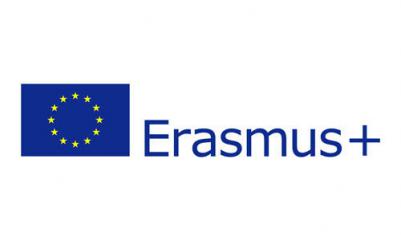International Projects
D-PBL: advancing project-based learning into the Digital Era

Vilnius College of Technologies and Design participates in Erasmus+ project D-PBL: advancing project-based learning into the Digital Era, No. 2021-1-PT01-KA220-HED-000032011.
Project implementation period: 2022-01-01 – 2023-12-31
The project involves 6 partners:
- University of Maia
- University of Belgrade
- Polytechnic Institute of Porto - ISEP
- Francisco de Vitoria University Foundation
- Vilnius College of Technology and Design
- University of Patras
The aim of the D-PBL project is to combine digital teaching–learning (EAD) with project-based learning (PBL), applied in a multi-national context, for the benefit of HE students and lecturers.
Target groups – higher education students and lecturers, selected from the partner institutions.
The objectives of the D-PBL project are grounded on three dimensions: giving sense to technical skills by providing a real context for the learning path; giving effective digital competencies which are useful for business; and integrating students into real multi-national teams. Partial specific objectives include: assessing lecturers’ digital skills (as their digital skills should be solid in order to teach them to students); training lecturers in the necessary blend of digital and pedagogic competencies; conceiving the space (room) where students and lecturers will work on their projects, enabling both the technical context and digital apparatus, i.e. create the D-PBL cell; and organizing multi-national teams working on business problems and finding solutions, while communicating via digital technologies.
Methodology:
The project will aim to create the following intellectual outputs:
O1 - EAD Digital Competencies Survey
O2 - EAD Training toolkit for Teachers
O3 - Architecture of Digital PBL Cells
O4 - Guidelines for PBL Digital Teaching-Learning.
The first output will be the EAD Digital Competencies Survey. This output will be divided into two separate deliverables: first, the survey itself to be applied to HE lecturers/teachers ascertain whether they have the required EAD skills; second, the analysis of the responses collected that will result in a needs analysis report. The project will then develop the EAD Training Toolkit/Course for Teachers. This toolkit will include user manuals (in video and e-book format) on technical, pedagogical, and behavioural features. This toolkit is aimed at capacitating lecturers/teachers so that later they can use the digital cells and apply PBL in the classroom context. The project will also design and deliver the Architecture of Digital D-PBL Cells (R3) which is intended to be drawings and guidelines of the room where D-PBL is to be operationalized. The output encompasses the layouts, definition of the equipment and decking, and guides for the lecturer stance and staging. This will be the PBL group “headquarters”, from which most of the multidisciplinary teamwork will be carried out. Finally, the project will produce a set of guidelines for digital problem-based teaching-learning. These guidelines will resume the results gathered during the implementation of the project, both on development and piloting in a real classroom context. This will work as a reference for other higher education organizations and initiatives in this field."
Expected Results
- Advancement of HE students’ transversal skills and employability.
- Enhancement of ICT and pedagogical skills of HE lecturers/teachers.
- Contributing to boosting virtual mobility and exchange in higher education across Europe.
- Contributing to the development of new educational models in the EHEA (European Higher Education Area), focusing on employability, interdisciplinary and international teamwork, and virtual environments.
- Granting minority, disadvantaged groups of students a real opportunity to experience internationalization during their studies, eliminating barriers to international mobility and promoting equity.
- Offering a unique benchmark to universities willing to adopt similar pedagogies allowing them to observe and setup their own digital cells and benefit from our prior experience and support. Students will gain new competencies in distance project work based on real problems, combining and using the benefits of new technologies.






